Triglyceride
How to submit an article:
- Registered users can submit any published journal article that has a unique DOI (Digital Object Identifier) name or link to Research Hub.
- For example, you can paste the full DOI link:
https://doi.org/10.1109/5.771073or just the DOI name:10.1109/5.771073into the field above and click submit. - The person who is first to submit a valid article to Research Hub will forever be credited for it, and every article submission earns you +6 Research Points.
Also known as: Hypertriglyceridaemia
Related Topics
Published research studies are articles that present the findings of original research that has undergone a peer-review process and has been made publicly available in scholarly journals, books or other media.

The effects of jujube (Ziziphus jujube) on metabolic and mental health outcomes in patients with metabolic syndrome: A randomized controlled trial
2024 Jun Complementary Therapies in Medicine Parastouei K, Nashtar SB, Al-Attar Z, Shekarchizadeh-Esfahani P, Askari G
Randomised Controlled Trial Stress Triglyceride Cholesterol JujubeConsuming jujube notably reduces waist circumference, triglycerides, and stress, while increasing high-density lipoprotein cholesterol in subjects with metabolic syndrome.
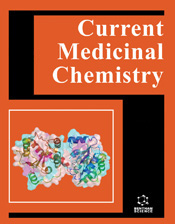
The Effects of Apple Cider Vinegar on Cardiometabolic Risk Factors: A Systematic Review and Meta-analysis of Clinical Trials
2023 Oct 11 Current Medicinal Chemistry Dadkhah Tehrani S, Keshani M, Rouhani MH, Moallem SA, Bagherniya M, Sahebkar A
Systematic Review Meta-Analysis Apple Cider Vinegar Blood Sugar Cholesterol HbA1CConsumption of apple cider vinegar significantly improves certain risk factors for cardiometabolic syndrome, notably fasting blood glucose, glycosylated hemoglobin, and total cholesterol.

The effects of pomegranate consumption on lipid profile in adults: A systematic review and meta-analysis
2023 Sep Journal of Functional Foods Bahari H, Rezaiian F, Goudarzi K, Nooshan Mirmohammadali S, Asbaghi O, sadat Hosseini kolbadi K, et al.
Systematic Review Meta-Analysis Cholesterol Triglyceride PomegranatePomegranate consumption positively affects triglycerides, low-density lipoprotein cholesterol, and high-density lipoprotein cholesterol levels.
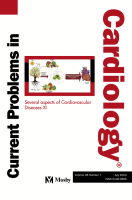
Effect of Oat (Avena sativa L.) Consumption on Lipid Profile With Focus on Triglycerides and High-density Lipoprotein Cholesterol (HDL-C): An Updated Systematic Review
2023 Jul Current Problems in Cardiology Amerizadeh A, Ghaheh HS, Vaseghi G, Farajzadegan Z, Asgary S
Systematic Review Triglyceride Cholesterol HDL-C OatsOat consumption can significantly improve lipid profiles, particularly reducing total cholesterol and LDL cholesterol, with potential positive effects on triglycerides and HDL cholesterol under certain conditions.

Manufacture and Evaluation of Novel Chocolate for Girls' Dysmenorrhea
2023 Mar 01 Journal of Food and Dairy Sciences Shalaby, A, Moawad O, Mostafa M
Randomised Controlled Trial Ginger Chinese Cinnamon Dark Chocolate Iron Field Mint CinnamonCinnamon, ginger, and mint enhanced chocolates effectively reduce menstrual pain and improve blood iron levels without increasing body weight or negatively affecting cholesterol.
Research insights are moderated by the Research Hub team and offer an at-a-glance overview of interesting research findings.

2024 Complementary Therapies in Medicine
Consuming jujube notably reduces waist circumference, triglycerides, and stress, while increasing high-density lipoprotein cholesterol in subjects with metabolic syndrome.
Randomised Controlled Trial Cholesterol Jujube Stress
The effects of jujube (Ziziphus jujube) on metabolic and mental health outcomes in patients with metabolic syndrome: A randomized controlled trial
Parastouei K, Nashtar SB, Al-Attar Z, Shekarchizadeh-Esfahani P, Askari G

2023 Current Medicinal Chemistry
Consumption of apple cider vinegar significantly improves certain risk factors for cardiometabolic syndrome, notably fasting blood glucose, glycosylated hemoglobin, and total cholesterol.
Systematic Review Apple Cider Vinegar Blood Sugar Cholesterol HbA1C
The Effects of Apple Cider Vinegar on Cardiometabolic Risk Factors:
A Systematic Review and Meta-analysis of Clinical Trials
Dadkhah Tehrani S, Keshani M, Rouhani MH, Moallem SA, Bagherniya M, Sahebkar A

2023 Journal of Functional Foods
Pomegranate consumption positively affects triglycerides, low-density lipoprotein cholesterol, and high-density lipoprotein cholesterol levels.
Systematic Review Cholesterol Pomegranate
The effects of pomegranate consumption on lipid profile in adults: A systematic review and meta-analysis
Bahari H, Rezaiian F, Goudarzi K, Nooshan Mirmohammadali S, Asbaghi O, sadat Hosseini kolbadi K, et al.

2023 Current Problems in Cardiology
Oat consumption can significantly improve lipid profiles, particularly reducing total cholesterol and LDL cholesterol, with potential positive effects on triglycerides and HDL cholesterol under certain conditions.
Systematic Review Cholesterol HDL-C Oats
Effect of Oat (Avena sativa L.) Consumption on Lipid Profile With Focus on Triglycerides and High-density Lipoprotein Cholesterol (HDL-C): An Updated Systematic Review
Amerizadeh A, Ghaheh HS, Vaseghi G, Farajzadegan Z, Asgary S

2023 Journal of Food and Dairy Sciences
Cinnamon, ginger, and mint enhanced chocolates effectively reduce menstrual pain and improve blood iron levels without increasing body weight or negatively affecting cholesterol.
Randomised Controlled Trial Chinese Cinnamon Cinnamon Dark Chocolate Field Mint Ginger
Manufacture and Evaluation of Novel Chocolate for Girls' Dysmenorrhea
Shalaby, A, Moawad O, Mostafa M
Review Articles
Review articles summarise and critically evaluate the current state of research on a specific topic or field by synthesising multiple primary research studies.

The Effects of Apple Cider Vinegar on Cardiometabolic Risk Factors: A Systematic Review and Meta-analysis of Clinical Trials
2023 Oct 11 Current Medicinal Chemistry Dadkhah Tehrani S, Keshani M, Rouhani MH, Moallem SA, Bagherniya M, Sahebkar A
Systematic Review Meta-Analysis Apple Cider Vinegar Blood Sugar Cholesterol HbA1CConsumption of apple cider vinegar significantly improves certain risk factors for cardiometabolic syndrome, notably fasting blood glucose, glycosylated hemoglobin, and total cholesterol.

The effects of pomegranate consumption on lipid profile in adults: A systematic review and meta-analysis
2023 Sep Journal of Functional Foods Bahari H, Rezaiian F, Goudarzi K, Nooshan Mirmohammadali S, Asbaghi O, sadat Hosseini kolbadi K, et al.
Systematic Review Meta-Analysis Cholesterol Triglyceride PomegranatePomegranate consumption positively affects triglycerides, low-density lipoprotein cholesterol, and high-density lipoprotein cholesterol levels.

Effect of Oat (Avena sativa L.) Consumption on Lipid Profile With Focus on Triglycerides and High-density Lipoprotein Cholesterol (HDL-C): An Updated Systematic Review
2023 Jul Current Problems in Cardiology Amerizadeh A, Ghaheh HS, Vaseghi G, Farajzadegan Z, Asgary S
Systematic Review Triglyceride Cholesterol HDL-C OatsOat consumption can significantly improve lipid profiles, particularly reducing total cholesterol and LDL cholesterol, with potential positive effects on triglycerides and HDL cholesterol under certain conditions.
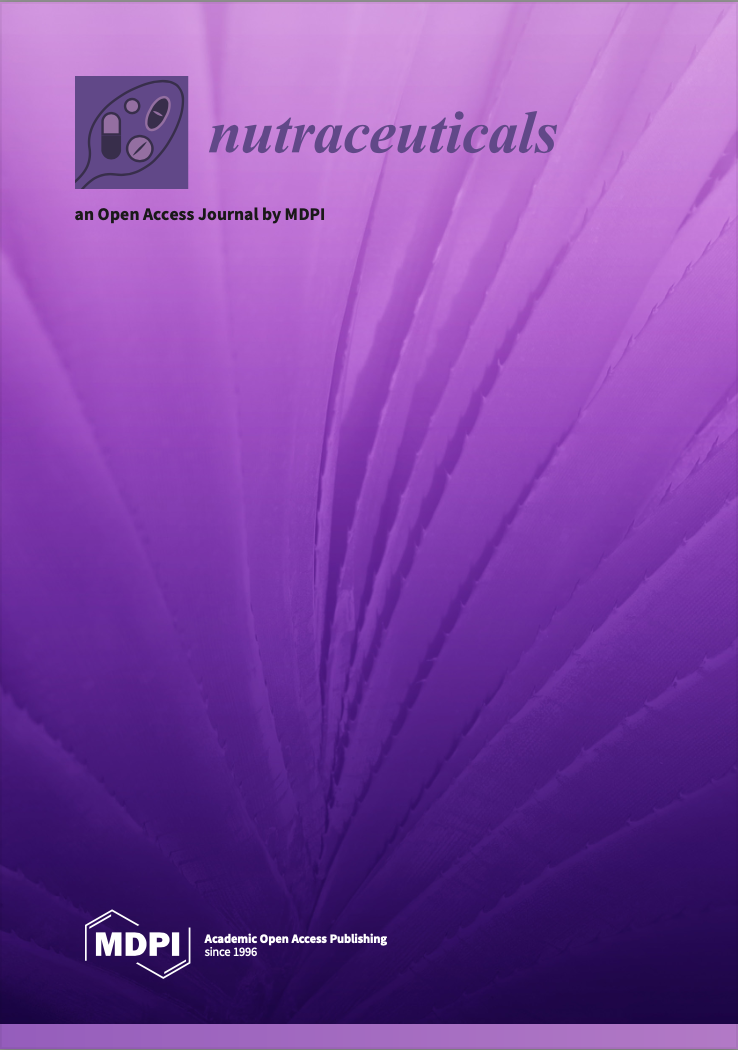
Arctium lappa Lam. and Its Related Lignans Improve Hyperglycemia and Dyslipidemia in Diabetic Rodent Models: A Systematic Review and Meta-Analysis
2022 Nov 11 Nutraceuticals Watanabe S, Yamabe S, Shimada M
Animal Study Systematic Review Meta-AnalysisA. lappa (burdock root) benefits diabetic rodents by reducing blood glucose and improving lipids, but human effects are uncertain

Citrus Extract as a Perspective for the Control of Dyslipidemia: A Systematic Review With Meta-Analysis From Animal Models to Human Studies
2022 Feb 14 Frontiers in Pharmacology Carvalho BMR, Nascimento LC, Nascimento JC, Gonçalves VSS, Ziegelmann PK, Tavares DS, et al.
Meta-Analysis Systematic Review Cholesterol Dyslipidemia LemonCertain species of citrus extracts effectively control dyslipidemia, reducing total cholesterol, LDL, and triglycerides while increasing HDL, primarily due to their rich antioxidant composition.
Clinical Trials
Clinical trials are research studies that involve people and are conducted to evaluate the safety and efficacy of new treatments or interventions, such as drugs, medical devices, or behavioural therapies.

The effects of jujube (Ziziphus jujube) on metabolic and mental health outcomes in patients with metabolic syndrome: A randomized controlled trial
2024 Jun Complementary Therapies in Medicine Parastouei K, Nashtar SB, Al-Attar Z, Shekarchizadeh-Esfahani P, Askari G
Randomised Controlled Trial Stress Triglyceride Cholesterol JujubeConsuming jujube notably reduces waist circumference, triglycerides, and stress, while increasing high-density lipoprotein cholesterol in subjects with metabolic syndrome.

Manufacture and Evaluation of Novel Chocolate for Girls' Dysmenorrhea
2023 Mar 01 Journal of Food and Dairy Sciences Shalaby, A, Moawad O, Mostafa M
Randomised Controlled Trial Ginger Chinese Cinnamon Dark Chocolate Iron Field Mint CinnamonCinnamon, ginger, and mint enhanced chocolates effectively reduce menstrual pain and improve blood iron levels without increasing body weight or negatively affecting cholesterol.
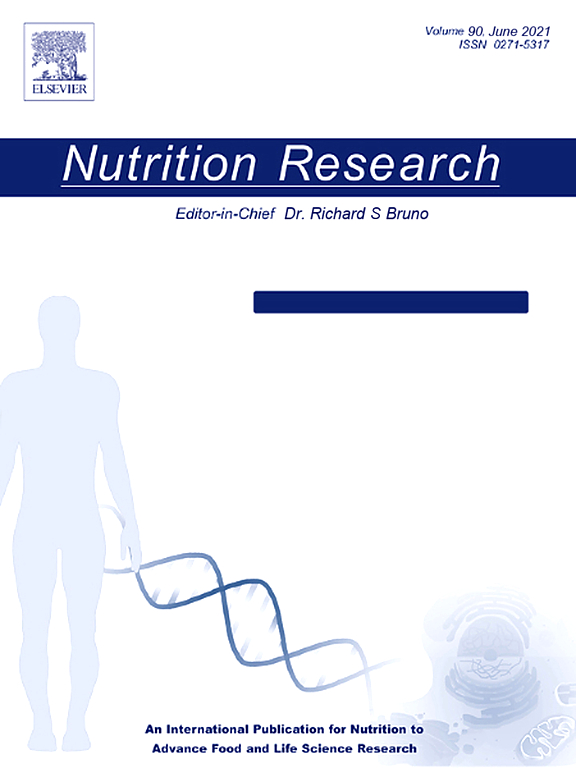
Pecan-enriched diet improves cholesterol profiles and enhances postprandial microvascular reactivity in older adults
2023 Mar Nutrition Research Cogan B, Pearson RC, Paton CM, Jenkins NT, Cooper JA
Daily consumption of 68 g of pecans for 4 weeks resulted in greater reductions in fasting total cholesterol, low-density lipoprotein (LDL) cholesterol, non-high-density lipoprotein cholesterol, LDL particle number, and LDL medium compared to a nut-free diet. Postprandial triglyceride levels were suppressed with pecan consumption, and improvements in microvascular reactivity were observed. Fasting macro- and microvascular function remained unaffected. The findings suggest that pecan consumption may contribute to improved vascular health and reduced cardiovascular risk in older adults.
Clinical Study Randomised Controlled Trial Cholesterol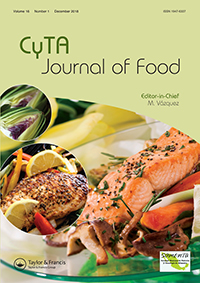
Effect of avocado honey on anthropometric and biochemical parameters in healthy subjects: a pilot randomised controlled trial
2022 Jun 16 CyTA - Journal of Food Hernández Salazar M, Flores A, Ramírez E, Llaca Díaz J, Rodríguez B, Castro H
Randomised Controlled Trial AvocadoAvocado honey, rich in bioactive compounds, can serve as a natural sweetener without negatively impacting anthropometric and biochemical parameters.

Effects of crocin supplementation on inflammatory markers, lipid profiles, insulin and cardioprotective indices in women with PCOS: A randomized, double‐blind, placebo‐controlled trial
2022 Apr 26 Phytotherapy Research Rahimi G, Shams S, Aslani MR
Crocin intervention (15 mg, twice daily) significantly increased high-density lipoprotein cholesterol, suppressed the increase in low-density lipoprotein cholesterol, triglycerides, and total cholesterol levels, and improved insulin and cardioprotective indices in women with PCOS. Additionally, crocin demonstrated protective effects against the increase in inflammatory markers (IL-6 and TNF-α) observed in the placebo group. The findings suggest that crocin supplementation may be beneficial in the therapeutic management of PCOS.
Clinical Study Randomised Controlled Trial PCOS CrocinStudy Protocols
Published study protocols are detailed plans that outline the objectives, methodology, statistical analyses, and organisation of a research study that have been made publicly available for others to review and use as a reference.
Presentation Slides

Randomised Controlled Trial
Consuming jujube notably reduces waist circumference, triglycerides, and stress, while increasing high-density lipoprotein cholesterol in subjects with metabolic syndrome.
Parastouei K, Nashtar SB, Al-Attar Z, Shekarchizadeh-Esfahani P, Askari G

Systematic Review
Consumption of apple cider vinegar significantly improves certain risk factors for cardiometabolic syndrome, notably fasting blood glucose, glycosylated hemoglobin, and total cholesterol.
Dadkhah Tehrani S, Keshani M, Rouhani MH, Moallem SA, Bagherniya M, Sahebkar A

Systematic Review
Pomegranate consumption positively affects triglycerides, low-density lipoprotein cholesterol, and high-density lipoprotein cholesterol levels.
Bahari H, Rezaiian F, Goudarzi K, Nooshan Mirmohammadali S, Asbaghi O, sadat Hosseini kolbadi K, Naderian M, Hosseini A

Systematic Review
Oat consumption can significantly improve lipid profiles, particularly reducing total cholesterol and LDL cholesterol, with potential positive effects on triglycerides and HDL cholesterol under certain conditions.
Amerizadeh A, Ghaheh HS, Vaseghi G, Farajzadegan Z, Asgary S

Randomised Controlled Trial
Cinnamon, ginger, and mint enhanced chocolates effectively reduce menstrual pain and improve blood iron levels without increasing body weight or negatively affecting cholesterol.
Shalaby, A, Moawad O, Mostafa M

Animal Study
A. lappa (burdock root) benefits diabetic rodents by reducing blood glucose and improving lipids, but human effects are uncertain
Watanabe S, Yamabe S, Shimada M

Randomised Controlled Trial
Avocado honey, rich in bioactive compounds, can serve as a natural sweetener without negatively impacting anthropometric and biochemical parameters.
Hernández Salazar M, Flores A, Ramírez E, Llaca Díaz J, Rodríguez B, Castro H

Meta-Analysis
Regular peanut consumption appears to positively influence lipid metabolism, reducing levels of triglycerides in the blood.
Parilli-Moser I, Hurtado-Barroso S, Guasch-Ferré M, Lamuela-Raventós RM

Meta-Analysis
Certain species of citrus extracts effectively control dyslipidemia, reducing total cholesterol, LDL, and triglycerides while increasing HDL, primarily due to their rich antioxidant composition.
Carvalho BMR, Nascimento LC, Nascimento JC, Gonçalves VSS, Ziegelmann PK, Tavares DS, Guimarães AG

Systematic Review
Cinnamon supplementation may significantly enhance metabolic status in women with polycicstic ovary syndrome, notably improving high-density lipoprotein and insulin sensitivity, and decreasing low-density lipoprotein, triglyceride, and blood glucose levels.
Maleki V, Faghfouri AH, Tabrizi FPF, Moludi J, Saleh-Ghadimi S, Jafari-Vayghan H, Qaisar SA
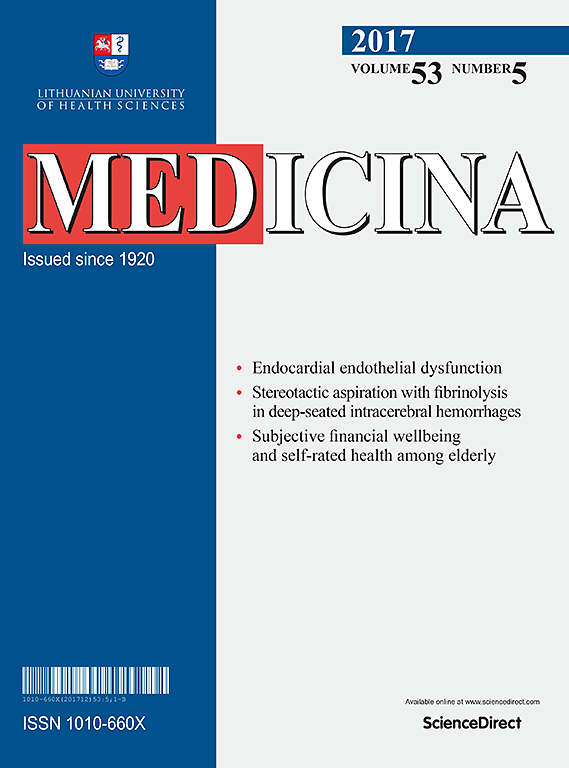
Systematic Review
Coffee extract supplementation significantly improves parameters of metabolic syndrome, with the effects varying according to the types and doses of coffee administered.
Ramli NNS, Alkhaldy AA, Mhd Jalil AM

Randomised Controlled Trial
Pomegranate extract supplement shows potential in improving glycemic indicators, serum lipids, anthropometrics, and blood pressure in patients with nonalcoholic fatty liver disease.
Goodarzi R, Jafarirad S, Mohammadtaghvaei N, Dastoorpoor M, Alavinejad P

Systematic Review
Chocolate and cocoa product consumption significantly improved lipid profiles, but had no significant effect on other heath aspects such as cognitive function and blood pressure.
Tan TYC, Lim XY, Yeo JHH, Lee SWH, Lai NM

Systematic Review
Apple cider vinegar intake can significantly decrease total cholesterol and fasting plasma glucose levels contributing to better cardiovascular health among adults.
Hadi A, Pourmasoumi M, Najafgholizadeh A, Clark CCT, Esmaillzadeh A
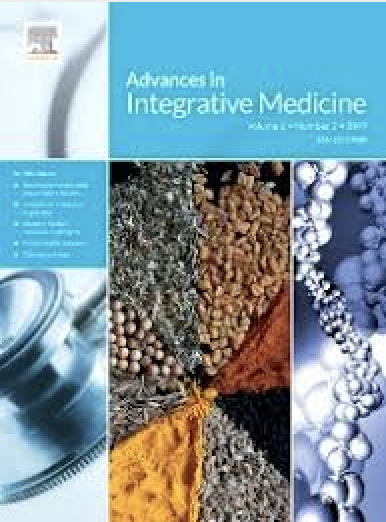
Randomised Controlled Trial
Pomegranate peel extract supplementation can decrease total cholesterol and triglyceride levels while boosting antioxidant status in obese women with knee osteoarthritis.
Haghighian MK, Rafraf M, Hemmati S, Haghravan S, Asghari-Jafarabadi M
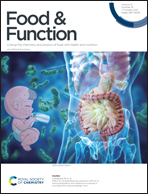
Systematic Review
Almond intake significantly changed the concentrations of triglycerides, total cholesterol and low-density lipoproteins
Asbaghi O, Moodi V, Hadi A, Eslampour E, Shirinbakhshmasoleh M, Ghaedi E, Miraghajani M
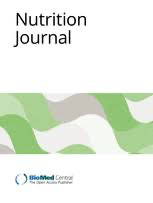
Systematic Review
The consumption of green tea significantly lowers low-density lipoprotein cholesterol and total cholesterol, but it does not affect high-density lipoprotein cholesterol or triglycerides.
Xu R, Yang K, Li S, Dai M, Chen G

Meta-Analysis
Supplementation with blueberry shows a potential for beneficial impact on reducing body weight, which might indirectly influence cardiovascular disease risk factors.
Miraghajani M, Momenyan S, Arab A, Hasanpour Dehkordi A, Symonds ME

Randomised Controlled Trial
Concentrated pomegranate juice consumption can potentially lower cardiovascular disease risk factors in women with polycystic ovary syndrome.
Abedini M, Ghasemi‐Tehrani H, Tarrahi MJ, Amani R
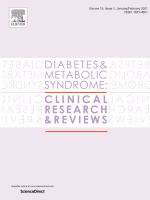
Systematic Review
Green tea extract supplement intake reduces serum triglyceride and total cholesterol in patients with type 2 diabetes mellitus, especially when used long term.
Asbaghi O, Fouladvand F, Moradi S, Ashtary-Larky D, Choghakhori R, Abbasnezhad A
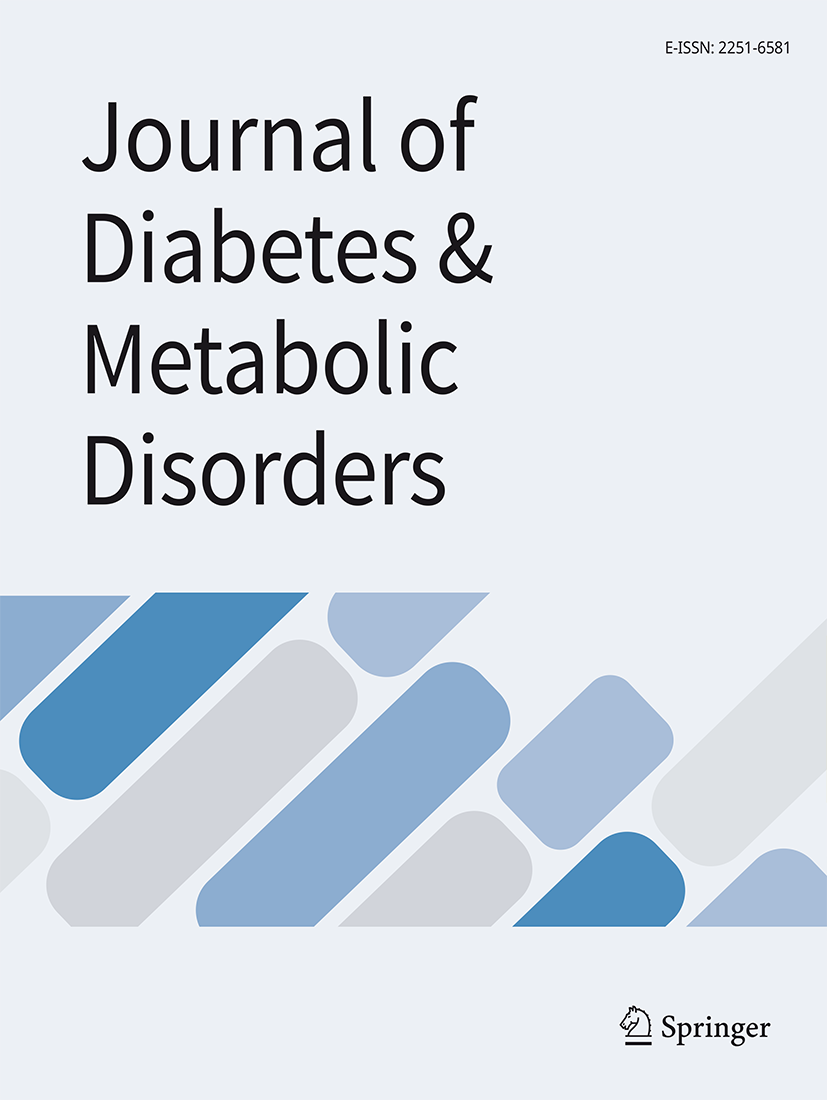
Systematic Review
Green coffee supplementation significantly decreases fasting blood sugar, insulin, and triglycerides while boosting high-density lipoprotein levels.
Morvaridi M, Rayyani E, Jaafari M, Khiabani A, Rahimlou M

Experimental Study
Pu-erh tea was found to lower triglyceride and total cholesterol levels more significantly than green, oolong, or black teas.
Huang, F., Zheng, X., Ma, X. et al.

Systematic Review
Drinking certain types of mineral water can positively influence metabolic syndrome factors like blood pressure, cholesterol, and blood sugar levels.
Costa-Vieira D, Monteiro R, Martins MJ

Systematic Review
Ginger supplementation has a favorable effect on levels of triacylglycerol and low-density lipoprotein cholesterol, especially in doses of 2 grams or less per day.
Pourmasoumi M, Hadi A, Rafie N, Najafgholizadeh A, Mohammadi H, Rouhani MH
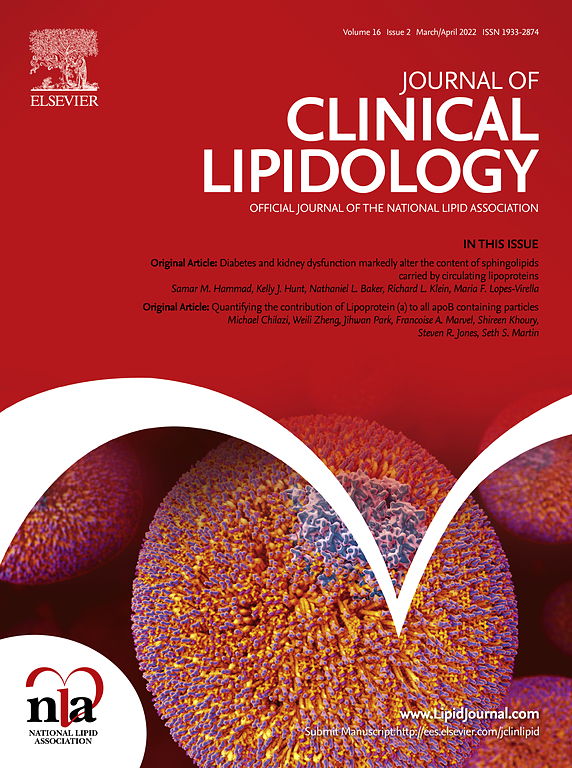
Systematic Review
Cinnamon supplementation significantly reduces blood triglycerides and total cholesterol levels without affecting low-density and high-density lipoprotein cholesterol.
Maierean SM, Serban MC, Sahebkar A, Ursoniu S, Serban A, Penson P, Banach M

Practice Guideline
Long-chain omega-3 polyunsaturated fatty acids have various health benefits for postmenopausal women including reducing triglycerides and improving depression and psychotic symptoms.
Sánchez-Borrego R, von Schacky C, Osorio MJA, Llaneza P, Pinto X, Losa F, Navarro MC, Lubián D, Mendoza N
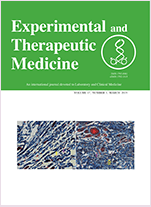
Randomised Controlled Trial
Pomegranate juice consumption over a short period promotes red blood cell production without significantly changing metabolic health and inflammation markers in healthy individuals.
Manthou E, Georgakouli K, Deli CK, Sotiropoulos A, Fatouros IG, Kouretas D, Haroutounian S, Matthaiou C, Koutedakis Y, Jamurtas AZ
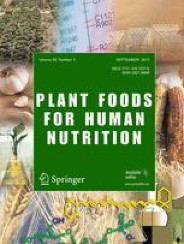
Randomised Controlled Trial
Pomegranate juice intake can reduce systolic and diastolic blood pressure and inflammation markers, but may increase triglyceride and very low-density lipoprotein cholesterol levels.
Moazzen H, Alizadeh M
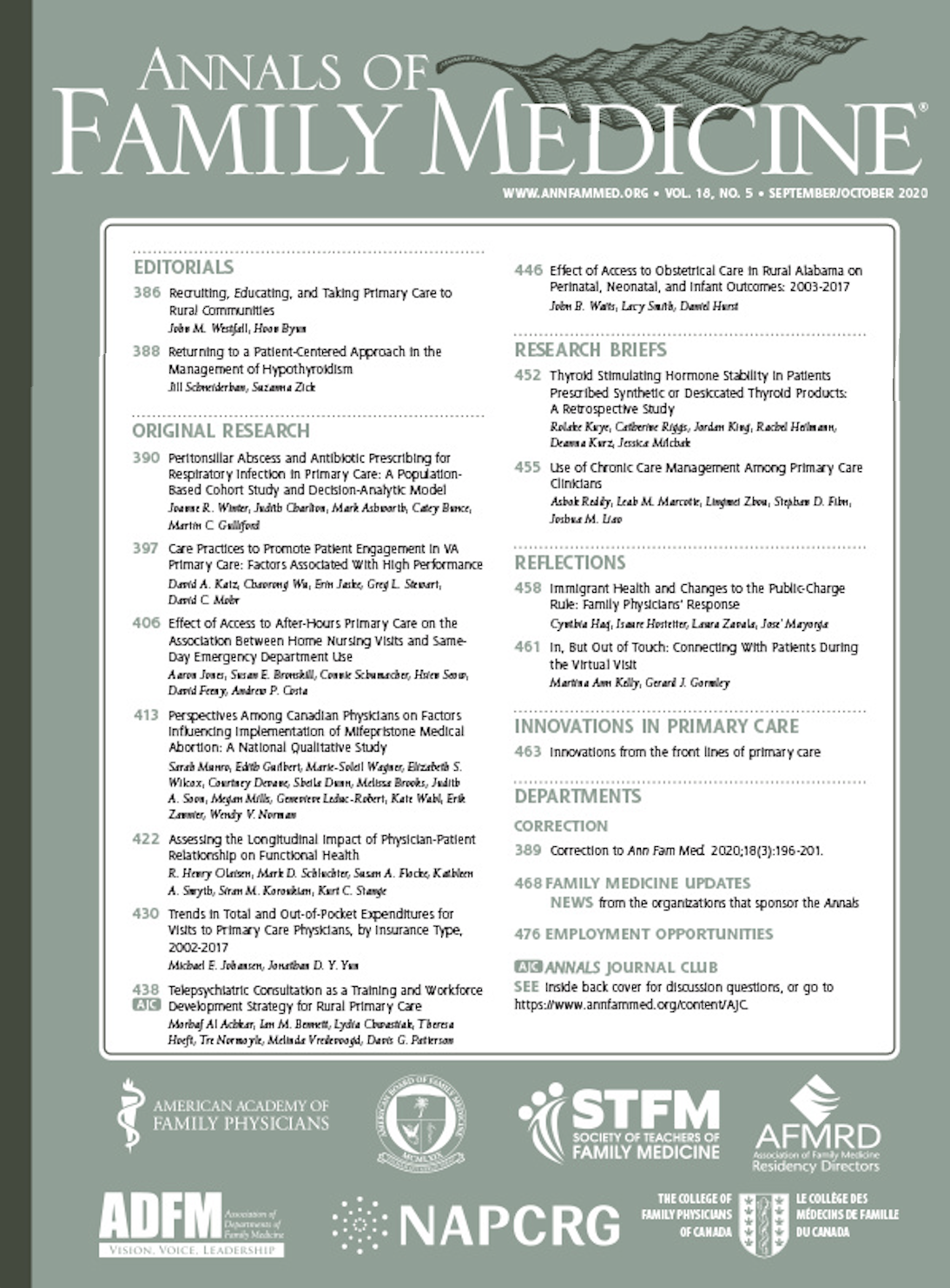
Systematic Review
The consumption of cinnamon is associated with a statistically significant decrease in levels of fasting plasma glucose, total cholesterol, LDL-C, and triglyceride levels, and an increase in HDL-C levels.
Robert W. Allen, Emmanuelle Schwartzman, William L. Baker, Craig I. Coleman and Olivia J. Phung
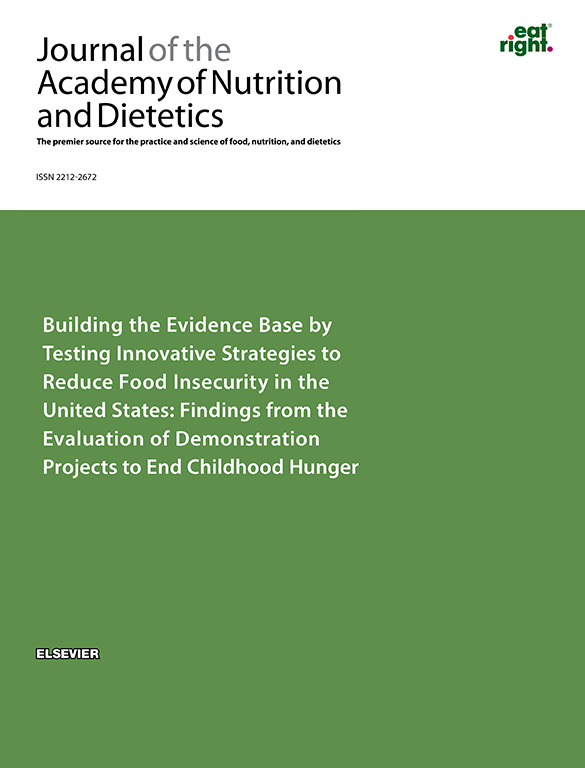
Systematic Review
The consumption of green tea catechins is associated with a statistically significant reduction in total and LDL cholesterol levels.
Kim A, Chiu A, Barone MK, Avino D, Wang F, Coleman CI, Phung OJ
Executive Summary
Write an executive summary in the form of a blog article on the topic of "Research into Chinese medicine treatment for Triglyceride" summarising the research below and using language that can be easily understood by patients and avoiding medical jargon using a professional and caring tone of voice.
Write an executive summary in the form of a blog article on the topic of "Researched Chinese medicine treatments for Triglyceride" summarising the research below in an objective and easy to understand way, and using language that can be easily understood by patients. Group the article into Chinese medicine treatments first, followed by nutrition and other treatments. Avoid using medical jargon and use a professional and caring tone of voice.
Write me a concise but easy to understand executive summary on the topic of "Chinese medicine treatments for Triglyceride" based on the following research that I will give you. Your summary should be 2 paragraphs long in Australian English spelling and include references to the studies.
A Randomised Controlled Trial published in 2024 in the journal Complementary Therapies in Medicine found that Consuming jujube notably reduces waist circumference, triglycerides, and stress, while increasing high-density lipoprotein cholesterol in subjects with metabolic syndrome. In this parallel-group, randomized controlled trial, sixty participants diagnosed with metabolic syndrome were randomly assigned to either receive 30g of dried jujube powder or a placebo for an eight-week period. They were instructed to consume half of their given powder at two different points in the day. Four measurements were taken as primary outcomes: lipid profile, fasting blood glucose, waist circumference, and blood pressure. Additionally, mental health measures, such as depression, anxiety, and stress, were evaluated as secondary outcomes. The data analysis showed that consuming jujube didn't lead to significant reductions in fasting blood glucose, total cholesterol, low-density lipoprotein cholesterol, blood pressure, or depression and anxiety scores. However, compared to the placebo group, the group consuming jujube showed a key reduction in waist circumference and triglycerides, and an increase in high-density lipoprotein cholesterol. Moreover, an improvement in stress scores was observed in the jujube group. The study, however, had methodological shortcomings regarding effective blinding and testing for herb purity and potency.
A Systematic Review published in 2023 in the journal Current Medicinal Chemistry found that Consumption of apple cider vinegar significantly improves certain risk factors for cardiometabolic syndrome, notably fasting blood glucose, glycosylated hemoglobin, and total cholesterol. This study applied a systematic review and meta-analysis of clinical trials found in PubMed, Scopus, and ISI Web of Science databases. In this process, trials evaluating the effects of apple cider vinegar consumption on cardiometabolic syndrome risk factors were sought. In total, 25 clinical trials were included in the study, these trials encompassed 1320 adult participants. The consumed apple cider vinegar led to a general improvement in fasting blood glucose, glycosylated hemoglobin, and total cholesterol. However, for body mass index, insulin resistance, serum insulin, triglycerides, low-density lipoprotein cholesterol, and high-density lipoprotein cholesterol, no significant results were observed. Conducting a subgroup analysis, the study identified a significant decrease in fasting blood glucose, glycosylated hemoglobin, total cholesterol, and triglycerides in diabetic patients. Further, it was observed that the apple cider vinegar significantly reduced fasting blood glucose levels regardless of the duration of administration and also decreased triglycerides concentration when consumed for 12 weeks or more.
A Systematic Review published in 2023 in the journal Journal of Functional Foods found that Pomegranate consumption positively affects triglycerides, low-density lipoprotein cholesterol, and high-density lipoprotein cholesterol levels. To investigate the impact of pomegranate on lipid profiles, a comprehensive database search was completed up until June 2023, aiming to identify related trials. Statistically, the researchers employed the estimated 95% confidence and the weighted mean difference to measure the variables, including triglycerides, total cholesterol, high-density lipoprotein cholesterol, and low-density lipoprotein cholesterol. They employed a random-effects model for their analysis. The meta-analysis revealed that pomegranate intake significantly reduces triglyceride levels. Still, it doesn't notably alter the total cholesterol concentrations. Additionally, consuming pomegranate seemed to have a diminishing impact on low-density lipoprotein cholesterol levels and an enhancing effect on high-density lipoprotein cholesterol levels.
A Systematic Review published in 2023 in the journal Current Problems in Cardiology found that Oat consumption can significantly improve lipid profiles, particularly reducing total cholesterol and LDL cholesterol, with potential positive effects on triglycerides and HDL cholesterol under certain conditions. In the methodology of this review study, information was gathered from various databases, including PubMed, Web of Science, and Google Scholar. The gathered data consisted of a total of 17 studies that explored the direct effects of oat consumption on lipid profiles. The focus of the studies included were the impacts of oat on levels of total cholesterol, VLDL, LDL-C, TG, and HDL-C. The review was meticulous, with a detailed examination of each study, particularly those showing positive effects of oat/beta-glucan consumption on triglycerides. The review's results revealed that oat intake significantly reduces the levels of total cholesterol, VLDL, and LDL-C. The effect of oat ingestion on triglyceride levels was varied; of the 17 studies, 6 reported a decrease in triglycerides. Interestingly, one study showed an improvement in HDL-C levels following oat consumption. It was also observed that oat intake might effectively reduce triglycerides in healthy individuals and overweight people or those with diabetes or metabolic syndrome, especially when larger amounts of oat were consumed over a longer duration or in conjunction with a calorie-reducing diet. The use of oat together with certain dietary programs was suggested to potentially enhance its positive effects on lipid profiles.
A Randomised Controlled Trial published in 2023 in the journal Journal of Food and Dairy Sciences found that Cinnamon, ginger, and mint enhanced chocolates effectively reduce menstrual pain and improve blood iron levels without increasing body weight or negatively affecting cholesterol. The methodology of the study involved a sample of 48 female student volunteers, aged 18-25, from Mansoura University who were experiencing dysmenorrhea. These volunteers were divided into eight groups of six and each group was given a different type of chocolate: regular chocolate, chocolate without herbal powder, chocolate with cinnamon powder, chocolate with cinnamon oil, chocolate with ginger powder, chocolate with ginger oil, chocolate with mint powder, and chocolate with mint oil. Discussion of the results demonstrated that the consumption of chocolates supplemented with cinnamon, ginger, and mint powders and their respective essential oils led to a significant improvement in participants' hemoglobin scores compared to a control group which consumed normal chocolate. Furthermore, it was found that these chocolates had a positive influence on serum total cholesterol, triglycerides, high-density lipoprotein, and low-density lipoprotein scores. Importantly, chocolate consumption did not lead to an increase in the participants' body mass index, proving that these chocolate variants could reduce menstrual pain and lift blood iron levels without instigating weight gain or having adverse effects on cholesterol levels.
A Animal Study published in 2022 in the journal Nutraceuticals found that A. lappa (burdock root) benefits diabetic rodents by reducing blood glucose and improving lipids, but human effects are uncertain This study analyzed the effects of A. lappa (burdock root) and related compounds on diabetic rodents. Results showed that these substances can lower blood glucose levels and improve triglyceride and cholesterol levels in these animals, depending on factors like the type of diabetes model used. However, it's essential to remember that these findings are based on animal studies, and we need more research to know if they apply to humans and prolonged use may have adverse effects.
A Randomised Controlled Trial published in 2022 in the journal CyTA - Journal of Food found that Avocado honey, rich in bioactive compounds, can serve as a natural sweetener without negatively impacting anthropometric and biochemical parameters. In this study, the researchers assessed the impact of consuming 25 grams of avocado honey daily for a period of four weeks on a group of 13 healthy individuals aged between 25 and 50 years, with Body Mass Indexes less than 25 kg/m2. The participants were divided into two groups, one acting as a control and the other as the honey consumption group. Despite the dietary addition of avocado honey, there were no significant deviations in the subjects' Body Mass Index and body fat percentage. Furthermore, it didn't affect biochemical parameters including fasting blood glucose, triglycerides, total cholesterol, high-density lipoprotein cholesterol, and low-density lipoprotein cholesterol. Consequently, avocado honey may be considered an effective functional food or natural sweetener.
A Meta-Analysis published in 2022 in the journal Frontiers in Nutrition found that Regular peanut consumption appears to positively influence lipid metabolism, reducing levels of triglycerides in the blood. In the ARISTOTLE study, a randomized control trial was conducted with 63 participants who consumed either 25g/day of skin roasted peanuts, two tablespoons of peanut butter per day, or two tablespoons per day of a control butter based on peanut oil alongside their usual diet for a period of 6 months. This was done to understand the impact of regular peanut consumption on anthropometric, biochemical, and clinical measurements. Additionally, a meta-analysis was carried out incorporating data from several clinical trials, including the aforementioned ARISTOTLE study, to further consider the effects of consuming peanuts and peanut butter in both healthy individuals and those at a high cardiometabolic risk. The findings from the ARISTOTLE study indicated that lower total cholesterol/HDL-cholesterol and LDL-cholesterol/HDL-cholesterol ratios were observed in the group consuming skin roasted peanuts compared to the control butter group. Furthermore, the meta-analysis of clinical trials highlighted an association between peanut consumption and a decrease in triglycerides. It was seen that healthy consumers had lower total cholesterol and LDL-cholesterol/HDL-cholesterol ratios compared to control groups. However, it was also discovered that individuals at a high cardiometabolic risk experienced an increase in body weight following the peanut interventions, despite no change in body fat or body mass index. From the dose-response analyses, it was inferred that body weight slightly escalated with higher dosages of peanuts.
A Meta-Analysis published in 2022 in the journal Frontiers in Pharmacology found that Certain species of citrus extracts effectively control dyslipidemia, reducing total cholesterol, LDL, and triglycerides while increasing HDL, primarily due to their rich antioxidant composition. The methodology involved systematic surveys of research databases including PubMed, Scopus, LILACS, and SciELO. The team utilised several descriptors like dyslipidemias, hypercholesterolemia, hyperlipidemias, lipoproteins, and cholesterol. From the initial findings, 958 articles were identified and after critical assessment, 26 studies were selected that showed the efficacy of certain species extracts in controlling dyslipidemia. Of these, 25 studies were incorporated into a meta-analysis conducted using R software. Assessment of potential bias was carried out as per Cochrane methodology and ARRIVE guidelines for preclinical and clinical studies respectively. From the total number of collected studies, the results consistently showed the effectiveness of these species extracts on dyslipidemia, reducing total cholesterol, LDL, and triglycerides while elevating HDL levels. The active composition of these extracts, particularly rich in flavonoids which are powerful antioxidants, was identified as the crucial factor. The bias risk across all studies was found to be critically low to moderate. Nevertheless, the high heterogeneity values noticed across the studies suggest some inconsistency in the evidence provided.
A Systematic Review published in 2021 in the journal Journal of Ovarian Research found that Cinnamon supplementation may significantly enhance metabolic status in women with polycicstic ovary syndrome, notably improving high-density lipoprotein and insulin sensitivity, and decreasing low-density lipoprotein, triglyceride, and blood glucose levels. The systematic review employed a PICO framework where the population was subjects with polycystic ovary syndrome (PCOS), the intervention was oral cinnamon supplement, the comparison group was either a control or a placebo group, and the outcome measured were changes in inflammatory, oxidative stress, lipid profile, glycemic, hormonal and anthropometric parameters, and ovarian function. To gather relevant research studies, databases including PubMed, Scopus, EMBASE, ProQuest, and Google Scholar were searched right from their inception until January 2020 using specific, relevant keywords. Out of the initial 266 studies found, only nine met the criteria for evaluation. The types of studies considered for this review included all clinical trials, animal studies, and english-language journal studies. The results showed a promising improvement in metabolic status in PCOS patients with cinnamon supplementation. This was shown through increased high-density lipoprotein and insulin sensitivity, and a decrease in low-density lipoprotein, triglyceride, and blood glucose levels in these patients. However, the impact of cinnamon on body weight and body mass index was inconsistent across the studies. Similarly, while the studies showed improved results regarding the effects of cinnamon on oxidative stress and ovarian function, the specific mechanisms behind these effects still need to be fully elucidated. Future studies should focus on observing clinical changes after cinnamon supplementation in PCOS through clinical trials with higher doses of cinnamon and a longer duration of intervention.
A Systematic Review published in 2021 in the journal Medicina found that Coffee extract supplementation significantly improves parameters of metabolic syndrome, with the effects varying according to the types and doses of coffee administered. In this systematic review and meta-analysis, the researchers sourced relevant articles from PubMed and Scopus published between 2015 and 2020. The investigation focused on randomised controlled trials that studied the impact of coffee consumption on factors like body measurements, blood sugar indices, lipid profiles, and blood pressure. Effects of green coffee extract (GCE) supplementation and decaffeinated coffee were analysed in the study. Following a meticulous extraction and analysis of data from the relevant studies, the researchers found significant improvements in parameters of metabolic syndrome upon supplementation with GCE and decaffeinated coffee. The GCE supplementation, ranging from 180 to 376 mg, was found to reduce waist circumference, triglyceride levels, systolic and diastolic blood pressure while increasing high-density lipoprotein-cholesterol levels. The intake of decaffeinated coffee reduced fasting blood glucose levels. The analysis revealed improvements in metabolic syndrome outcomes for participants consuming GCE and liquid decaffeinated coffee.
A Randomised Controlled Trial published in 2021 in the journal Phytotherapy Research found that Pomegranate extract supplement shows potential in improving glycemic indicators, serum lipids, anthropometrics, and blood pressure in patients with nonalcoholic fatty liver disease. The study involved 44 patients who had been diagnosed with nonalcoholic fatty liver disease. These individuals were randomly assigned to two groups, with one group receiving two pomegranate extract tablets daily over a period of 12 weeks, and the other a placebo. The researchers measured anthropometric values, serum lipid levels, blood pressure, and glycemic indicators before and after the intervention. In their analysis of the outcomes, the researchers found that the group which received the pomegranate extract showed reductions in total cholesterol, triglyceride levels, the ratio of low-density lipoprotein cholesterol to high-density lipoprotein cholesterol, fasting blood sugar, resistance to insulin, diastolic blood pressure, weight, body mass index, and waist circumference when compared to the placebo group. Additionally, an increase in serum high-density lipoprotein cholesterol was observed within the pomegranate group, indicating the potential utility of this supplement in a treatment regimen for this condition.
A Systematic Review published in 2021 in the journal Nutrients found that Chocolate and cocoa product consumption significantly improved lipid profiles, but had no significant effect on other heath aspects such as cognitive function and blood pressure. A systematic search was performed on academic databases such as MEDLINE, EMBASE, and the Cochrane Central Register of Controlled Trials. The researchers utilized a precise search strategy and keywords to gather the most relevant studies and evidence. The studies focused on a variety of health effects related to the consumption of chocolate and cocoa products, like their effects on skin, cardiovascular health, anthropometry, cognitive function, blood glucose levels, and overall quality of life. The research revealed considerable improvements in lipid profiles (particularly in triglycerides) among those who consumed chocolate or cocoa products, compared to controls. However, there were no significant differences observed in other outcome parameters related to skin health, blood pressure, cognitive function, anthropometry, blood glucose levels, and quality of life between the chocolate/cocoa consumption group and the control group. The subjects generally accepted chocolate well, with gastrointestinal disturbances and unpalatability reported as their main concerns.
A Systematic Review published in 2021 in the journal BMC Complementary Medicine and Therapies found that Apple cider vinegar intake can significantly decrease total cholesterol and fasting plasma glucose levels contributing to better cardiovascular health among adults. The research process involved a thorough examination of electronic databases such as Medline, Scopus, Cochrane Library, and Web of Knowledge, from their creation until January 2020. The goal was to discover any clinical trial that explored the influence of apple cider vinegar (ACV) on lipid profiles and glycemic indicators. Studies where ACV was combined with other interventions or where the intervention duration was less than two weeks were excluded. To manage the differences between studies, a random-effects model was applied during the meta-analysis process comprising nine studies, including ten study arms. ACV use demonstrated a remarkable decrease in total cholesterol and fasting plasma glucose (FPG) levels. However, there wasn't a noticeable impact observed on LDL-C, HDL-C, fasting insulin concentrations, or HOMA-IR serum levels. When analyzed further, it was found that a reduction in serum TC and TG occurred in a patient subgroup with type 2 diabetes, those who consumed less than or equal 15 mL/day of ACV, and those who consumed it for over 8-weeks. Consequently, a significant decrease in FPG levels was found in studies where participants consumed ACV for more than 8 weeks. Interestingly, FPG and HDL-C levels appeared to increase in participants who were otherwise healthy.
A Randomised Controlled Trial published in 2021 in the journal Advances in Integrative Medicine found that Pomegranate peel extract supplementation can decrease total cholesterol and triglyceride levels while boosting antioxidant status in obese women with knee osteoarthritis. The research was a randomized, double-blind placebo-controlled trial involving 66 obese women aged 38 to 60 years old with knee osteoarthritis. These participants were split into two groups, the intervention group and control group, each containing 33 members. The intervention group received pomegranate peel extract capsules (500 mg) twice daily for 8 weeks including standard drug therapy while the control group was given a placebo during the same period. All participants' fasting blood samples, anthropometric measurements, dietary intake data, and physical activity levels were collected both before the start and at the end of the trial. Results analysis showed that pomegranate peel extract supplementation brought down levels of serum total cholesterol, triglyceride and an oxidative stress marker while enhancing levels of some antioxidant enzymes and the overall antioxidant capacity when compared to the control group. However, there were no noticeable alterations between the two groups in terms of low-density lipoprotein cholesterol, high-density lipoprotein cholesterol, and body mass index by the end of the experiment.
A Systematic Review published in 2021 in the journal Food & Function found that Almond intake significantly changed the concentrations of triglycerides, total cholesterol and low-density lipoproteins To estimate the overall effect of almond intake, we employed the random-effect model. In total, 27 studies with 36 effect sizes were included in our analysis (1154 cases and 904 control subjects). The meta-analysis revealed that almond intake significantly changed the concentrations of triglycerides, total cholesterol, and low-density lipoproteins; however it did not have a significant effect on high-density lipoprotein levels. Meta-regression analysis indicated a linear relationship between the dose of almond and change in TG. This meta-analysis concludes that almond intake can significantly reduce lipid parameters.
A Systematic Review published in 2020 in the journal Nutrition Journal found that The consumption of green tea significantly lowers low-density lipoprotein cholesterol and total cholesterol, but it does not affect high-density lipoprotein cholesterol or triglycerides. To gather data for this study, a comprehensive literature review and meta-analysis were conducted using PubMed, Embase, and the Cochrane Library. The databases were searched from their inception to September 2019 for all studies related to the effect of green tea on blood lipids. Information from these studies, which included randomized and controlled trials, was used to estimate blood lipid changes resulting from green tea supplementation. The collected information underwent rigorous assessment for any potential bias. The analysis of data derived from 31 different trials involving a total of 3321 subjects showed that green tea intake has a significant effect in lowering low-density lipoprotein cholesterol and total cholesterol levels. However, consumption of green tea did not yield significant changes in the levels of high-density lipoprotein cholesterol or triglycerides. The results remained consistent across both normal-weight and overweight-obese subjects. No significant publication bias was detected from the collected studies, fortifying the reliability of the results.
A Meta-Analysis published in 2020 in the journal Complementary Therapies in Medicine found that Supplementation with blueberry shows a potential for beneficial impact on reducing body weight, which might indirectly influence cardiovascular disease risk factors. The methodology involved searching various digital databases such as ISI Web of Science, Scopus, PubMed, and Cochrane Library in March 2020. The researchers looked for all randomized and controlled clinical trials that used blueberry supplements to modify cardiovascular disease risk factors. Inclusion criteria were not restricted by language. References lists from primary studies and review articles were also checked for any additional studies. The results showed that although blueberry supplementation had a small, insignificant effect in reducing plasma triglycerides, there were no differences found between blueberry and control groups for any other cardiovascular disease risk outcomes. However, subgroup analysis indicated a potential favorable impact of blueberry on reducing body weight. It was found that studies lasting longer than 6 weeks or those that used blueberry powder or freeze-dried blueberry were indicative of significant weight loss.
A Randomised Controlled Trial published in 2020 in the journal Phytotherapy Research found that Concentrated pomegranate juice consumption can potentially lower cardiovascular disease risk factors in women with polycystic ovary syndrome. The study used a randomized clinical approach, enrolling 44 women identified with polycystic ovary syndrome, aged 18 to 40 years and above a certain body weight index. These participants were randomly divided into two groups: one group was given concentrated pomegranate juice (CPJ), while the other served as a control. Both groups were monitored over a period of 8 weeks, with baseline measurements taken for anthropometric measures, blood pressure, and biochemical parameters set at the onset and then compared at the end of the trial. Upon completion, the group that consumed CPJ showed reductions in blood pressure and serum triglyceride levels — a known risk factor for cardiovascular diseases. There was also an increase in the amount of high density lipoprotein-cholesterol (good cholesterol) and a decrease in the triglyceride to high-density lipoprotein-cholesterol ratio. However, an increase was observed in levels of low-density lipoprotein-cholesterol (bad cholesterol). No adverse events or complications arose from CPJ consumption during the study period.
A Systematic Review published in 2020 in the journal Diabetes & Metabolic Syndrome: Clinical Research & Reviews found that Green tea extract supplement intake reduces serum triglyceride and total cholesterol in patients with type 2 diabetes mellitus, especially when used long term. A comprehensive search through popular databases such as Web of Science, PubMed, and Scopus was conducted to find randomized controlled trials (RCTs) that investigated the effects of green tea extract on lipid profiles in adults with type 2 diabetes. Parameters of interest included concentrations of high- and low-density lipoprotein, triglyceride, and total cholesterol. A total of 780 studies were initially retrieved and, after applying specific criteria and eliminations, seven were ultimately considered. Through the studies, it was found that taking additional green tea extract improved lipid profiles by notably decreasing triglyceride levels in patients with type 2 diabetes. Further subgroup analysis, based on parameters such as the duration of interventions and dosage, showed that longer-term use of green tea extract and higher daily doses led to significant decreases in serum triglyceride concentrations. Noteworthy findings were observed where long-term interventions, combined with lower daily doses, resulted in considerable reductions in total cholesterol levels.
A Systematic Review published in 2020 in the journal Journal of Diabetes & Metabolic Disorders found that Green coffee supplementation significantly decreases fasting blood sugar, insulin, and triglycerides while boosting high-density lipoprotein levels. In methodology, a comprehensive literature review was carried out across PubMed, Embase, Scopus, and the Web of Science databases until October 2019. The objective was to scrutinize all randomized controlled trials of the impact of green coffee supplementation on various cardio metabolic risk factors in adults. These risk factors included fasting blood sugar, insulin, triglycerides, high and low-density lipoproteins and C-reactive protein. Data was then extracted from the relevant studies for analysis. From the selected 27 studies for final analysis, the pooled results depicted that green coffee supplementation had a significant effect in reducing fasting blood sugar, insulin, and triglyceride levels. In addition, it was found to increase the levels of high-density lipoprotein. Conversely, it was determined that the supplementation did not lead to any notable changes in the Homeostatic Model Assessment for Insulin Resistance, low-density lipoprotein and C-reactive protein levels.
A Experimental Study published in 2019 in the journal Nature Communications found that Pu-erh tea was found to lower triglyceride and total cholesterol levels more significantly than green, oolong, or black teas. Comparative studies using rodents treated with Pu-erh tea, green tea, and black tea provided supporting evidence that fully fermented Pu-erh tea is more effective in causing hypolipidemic and hypocholesterolemic effects compared to other partially fermented and non-fermented teas.
A Systematic Review published in 2019 in the journal Nutrients found that Drinking certain types of mineral water can positively influence metabolic syndrome factors like blood pressure, cholesterol, and blood sugar levels. This review examined 20 studies sourced from PubMed, Scopus, and Google Scholar on how mineral water consumption affects metabolic syndrome (MetSyn) features. The studies varied in their approach, including the type and composition of mineral water, the amount consumed, dietary factors, and study duration. Both human and animal studies were included, with diverse population sizes and characteristics. The research focused on several MetSyn aspects: blood pressure (BP), total triglycerides, HDL-cholesterol, glucose levels, and waist circumference (WC). The review found that certain types of mineral water had beneficial effects on blood pressure, total triglycerides, HDL-cholesterol, and glucose levels, although no significant influence on waist circumference was reported. The presence of specific minerals, elements, and active ions or molecules in the water, along with their pH levels, appeared crucial in counteracting metabolic dysfunctions and the increased acid load in diets associated with MetSyn. The studies discussed various molecular and physiological mechanisms behind these effects. However, further research is needed to fully understand the mechanisms by which mineral water consumption might protect against MetSyn features.
A Systematic Review published in 2018 in the journal Phytomedicine found that Ginger supplementation has a favorable effect on levels of triacylglycerol and low-density lipoprotein cholesterol, especially in doses of 2 grams or less per day. Systematic searches were conducted on various databases including PubMed, Scopus, Science Direct, ISI Web of Science and Google Scholar until May 2017. The aim was to locate clinical trials examining the effect of ginger supplementation on lipid parameters in adults. Information relating to blood lipid means and potential sources of heterogeneity was extracted. Subgroup analysis was further conducted to identify potential sources of inter-study heterogeneity. In total, the meta-analysis included data from 12 trials involving 586 participants. The pooled analysis indicated that ginger supplementation led to reductions in triacylglycerol and low-density lipoprotein cholesterol. Ginger, however, revealed no significant changes in total cholesterol and high-density lipoprotein cholesterol. It was noted that a high degree of inter-study heterogeneity existed. Therefore, studies were further classified based on the dosage of ginger used. Stratification showed significant reductions in total cholesterol and triacylglycerol in those studies using doses of 2 grams or less of ginger per day. Conversely, such an effect was not observed in trials that used doses greater than 2 grams of ginger. There also wasn't any significant alteration in low-density lipoprotein or high-density lipoprotein cholesterol noted in studies irrespective of ginger dosage.
A Systematic Review published in 2017 in the journal Journal of Clinical Lipidology found that Cinnamon supplementation significantly reduces blood triglycerides and total cholesterol levels without affecting low-density and high-density lipoprotein cholesterol. The study's methodology included the systematic review and evaluation of 13 randomized controlled trials involving 750 participants. These trials examined the impact of cinnamon supplementation on blood lipid concentrations. The researchers performed a meta-analysis employing random effect models and calculated weighted mean differences for endpoints using a random effects model too. The results of the study indicated no substantial effect of cinnamon on low-density lipoprotein cholesterol (LDL-C) and high-density lipoprotein cholesterol (HDL-C) concentrations. However, a significant decrease in blood triglycerides and total cholesterol concentrations was observed. Furthermore, in a meta-regression analysis, no notable association was found between changes in lipid parameters and the dosage of cinnamon. However, changes in total cholesterol, LDL-C, and triglycerides were positively linked with the duration of supplementation.
A Practice Guideline published in 2017 in the journal Maturitas found that Long-chain omega-3 polyunsaturated fatty acids have various health benefits for postmenopausal women including reducing triglycerides and improving depression and psychotic symptoms. A panel of experienced experts from the Spanish Menopause Society embarked to establish a comprehensive set of recommendations for the intake of long-chain omega-3 polyunsaturated fatty acids by postmenopausal women. This was steered based on the best available evidence and research. It was especially noted that the consumption of these fatty acids, at doses higher than 3 grams per day, proved to significantly decrease the levels of triglycerides in the body. The results obtained from this study are promising and underline the potential health benefits of long-chain omega-3 polyunsaturated fatty acids for postmenopausal women. Alongside reducing triglyceride levels, they also contribute to antiarrhythmic effects, reduction in blood pressure, and improvements in depressive and psychotic symptoms. Furthermore, it was noted that their consumption does not increase the risk of cancer in these women. The potential of these fatty acids in providing relief from menopause symptoms and osteoporosis was also explored, yielding positive indications.
A Randomised Controlled Trial published in 2017 in the journal Experimental and Therapeutic Medicine found that Pomegranate juice consumption over a short period promotes red blood cell production without significantly changing metabolic health and inflammation markers in healthy individuals. In the methodology of this study, ten healthy subjects (five males and five females averaging 31.8 years of age and weighing an average of 66.2 kg) were split into two groups. One group drank 500 ml of pomegranate juice every day for 14 days, while the other did not. Blood samples were taken from the subjects before and after the experimental period to measure various health markers. In the discussion of results, it was observed that pomegranate juice intake led to a substantial rise in red blood cell count, hemoglobin levels, and hematocrit levels. However, other complete blood count parameters, and levels of glucose, cholesterol, triglycerides, high-density lipoprotein, low-density lipoprotein, and C-reactive protein remained largely unaffected after the juice consumption. This suggests that pomegranate juice only had a substantial effect on increasing erythropoiesis or decreasing degradation in healthy individuals.
A Randomised Controlled Trial published in 2017 in the journal Plant Foods for Human Nutrition found that Pomegranate juice intake can reduce systolic and diastolic blood pressure and inflammation markers, but may increase triglyceride and very low-density lipoprotein cholesterol levels. In this double-blind crossover study involving 30 patients with metabolic syndrome, the subjects were given a daily dose of 500 ml pomegranate juice for a week. After a week-long "wash out" period, the participants were then given a placebo for another week. A range of metrics, including lipid profile, fasting blood glucose, fasting insulin, systolic and diastolic blood pressure, and high-sensitivity C-reactive protein (a marker of inflammation) were measured at the beginning and end of the study. After conducting a repeated measure analysis of variance and a t-test, the researchers found that compared to the placebo, pomegranate juice significantly reduced systolic and diastolic blood pressure as well as inflammation markers. However, it also led to an increase in triglyceride and very low-density lipoprotein cholesterol levels. Other metrics such as the rest of the lipid profile, fasting blood glucose, insulin, and a measure of insulin resistance, showed no notable changes.
A Systematic Review published in 2014 in the journal Annals of Family Medicine found that The consumption of cinnamon is associated with a statistically significant decrease in levels of fasting plasma glucose, total cholesterol, LDL-C, and triglyceride levels, and an increase in HDL-C levels. To put the results of our meta-analysis into better context, the reductions found can be compared with established therapies. As an example, the reductions in fasting plasma glucose levels (−24.59 mg/dL) are less than those achieved by metformin monotherapy (−58 mg/dL) and somewhat more than the newer oral agents, such as sitagliptin (−16 to −21 mg/dL). Our results showed cinnamon to reduce LDL-C and triglyceride levels by approximately 9.4 and 29.6 mg/dL, respectively. As a comparison, the lipid-lowering drugs pravastatin and gemfibrozil reduce LDL-C and triglyceride levels by approximately 50 mg/dL (26%) and 50 mg/dL (31%), respectively. Based on currently available literature, cinnamon may have a beneficial effect on fasting plasma glucose, LDL-C, HDL-C, and triglyceride levels in patients with type 2 diabetes. There is no statistically significant effect on hemoglobin A1c, however. Caution should be exercised in applying the results of this analysis to patient care because of the certainty of the dose and duration of cinnamon use and uncertainty of the ideal patient population.
A Systematic Review published in 2011 in the journal Journal of the Academy of Nutrition and Dietetics found that The consumption of green tea catechins is associated with a statistically significant reduction in total and LDL cholesterol levels. Twenty trials (N=1,415) met all inclusion criteria. Upon meta-analysis, GTCs at doses ranging from 145 to 3,000 mg/day taken for 3 to 24 weeks reduced total and LDL cholesterol compared to control. GTCs did not significantly alter HDL cholesterol or triglyceride levels. The consumption of GTCs is associated with a statistically significant reduction in total and LDL cholesterol levels; however, there was no significant effect on HDL cholesterol or triglyceride levels.
Moderation Tools
Topic
Sign In
Users not signed in are limited to viewing the 5 most recent items of content.